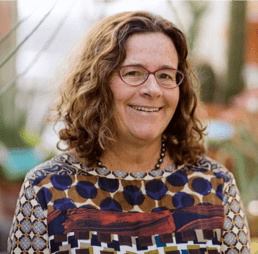Dartmouth SRP Community Engagement Core (CEC) Leader Anna Adachi-Mejia, Ph.D., published an article on the scientific writing process in Medium. The article, “Baking a process into writing your first draft of a scientific piece,” compares the writing process to the experience of baking and offers “…a framework to bake a process into writing the first draft of the scientific piece that you have been avoiding.”
All posts by Marcy
Dartmouth SRP Director Participates in COP3 Meeting in Geneva
Dartmouth Superfund Research Program Director Celia Chen represented Dartmouth College as an observing Civil Society Organization at the third meeting of the Conference of the Parties to the Minamata Convention on Mercury (COP3) in Geneva November 25-29, 2019. The Conference was attended by parties  (countries) that have ratified, accepted, approved or accessed the Minamata treaty or are in the process of ratifying it, as well as observers. Currently 115 countries have ratified or accepted the treaty. On June 11, 2013 the US was the first country to sign and accept the treaty. Discussion in “contact groups” (smaller meetings) included a focus on how the effectiveness of the treaty will be evaluated. No agreement was reached by the parties on Effectiveness Evaluation. Dr. Chen also represented Dartmouth at the 10th meeting of the Global Mercury Partnership, which was held prior to COP3, as a member of the Policy Advisory Group (PAG) on Fate and Transport of Mercury. COP4 will be in 2021.
(countries) that have ratified, accepted, approved or accessed the Minamata treaty or are in the process of ratifying it, as well as observers. Currently 115 countries have ratified or accepted the treaty. On June 11, 2013 the US was the first country to sign and accept the treaty. Discussion in “contact groups” (smaller meetings) included a focus on how the effectiveness of the treaty will be evaluated. No agreement was reached by the parties on Effectiveness Evaluation. Dr. Chen also represented Dartmouth at the 10th meeting of the Global Mercury Partnership, which was held prior to COP3, as a member of the Policy Advisory Group (PAG) on Fate and Transport of Mercury. COP4 will be in 2021.
Mercury and Selenium Concentrations, and Selenium:mercury Molar Ratios in Small Cetaceans Taken Off St. Vincent, West Indies
Dartmouth Superfund Program (SRP) researcher Brian Jackson is co-author of the paper Mercury and Selenium Concentrations, and Selenium:mercury Molar Ratios in Small Cetaceans Taken Off St. Vincent, West Indies. According to the paper, the “high THg (total mercury) concentrations in cetacean tissues in this study, along with the high number of small cetaceans that are taken for human consumption each year, and the frequency at which cetacean products are consumed, suggests that consumption of small cetaceans in St. Vincent is a human health issue that warrants further investigation. Future policy changes or advisories may be needed to inform the public, especially regarding the consumption of killer whales and short-finned pilot whales.” The paper is published in the journal Environmental Research.
Dr. Mary Lou Guerinot is Senior Researcher for Breakthrough Study on Iron Uptake in Plants
 Mary Lou Guerinot, Ph.D., Dartmouth Superfund Research Program (SRP) researcher and professor of Biological Sciences, is the senior researcher on a project that has discovered a gene that controls the iron uptake in plants. This discovery potentially could be key to the iron potency of rice and other crops that are a major part of the diet of more than half the world’s population. According to Dr. Guerinot, “We have discovered a key regulator in one of the world’s most important nutrient pathways. If we can now figure out how to optimize the pathway, we could feed billions of people that suffer from iron deficiency – a huge problem especially for women and children worldwide.” NH Union Leader Article. Dartmouth Press Release.
Mary Lou Guerinot, Ph.D., Dartmouth Superfund Research Program (SRP) researcher and professor of Biological Sciences, is the senior researcher on a project that has discovered a gene that controls the iron uptake in plants. This discovery potentially could be key to the iron potency of rice and other crops that are a major part of the diet of more than half the world’s population. According to Dr. Guerinot, “We have discovered a key regulator in one of the world’s most important nutrient pathways. If we can now figure out how to optimize the pathway, we could feed billions of people that suffer from iron deficiency – a huge problem especially for women and children worldwide.” NH Union Leader Article. Dartmouth Press Release.
Dartmouth SRP Presents at National SRP Meeting
The Dartmouth Center team had a great time at the SRP Annual meeting in Seattle. Thanks to all of the meeting organizers! Brett Doherty (PhD Student with Project 4), gave a talk on “Periconceptional and prenatal exposure to metal mixtures in relation to behavioral development at three years of age in the New Hampshire Birth Cohort Study.” Poster presentations were given by Anna Adachi-Mejia (CEC Leader) on “New Hampshire Arsenic MCL Reduction: A Case Study in Risk Communication Planning for Contaminants of Emerging Concern”; Jiang Gui (Project 4 researcher) on “An Integrated Gaussian Graphical Model to Evaluate the Impact of Exposures on Metabolic Networks”; Hannah Laue (Project 4 student) on “Early postnatal gut microbiome and nutrient-toxic element mixtures in a United States longitudinal birth cohort”; Laurie Rardin (RTC Coordinator) on “Creating Community for Government Partnerships: Two Case Studies of Research Translation”; Todd Warczak (Project 1 Trainee) on “Arsenic Detoxification in Plant Roots: Identifying Arsenic Effluxers; and Kevin Yuan (Project 2 student) on “Patterns of inorganic and organic co-contaminants in marine fish and shellfish.”
Science & Policy Must Remain Partners in Mercury: Dartmouth SRP Director Co-Authors Opinion Article on Mercury Science & Policy from COP-3 in Geneva
 Dartmouth Superfund Research Program Director Celia Chen co-authored an opinion article on the importance of the partnership between science and policymaking for the successful implementation of the 2017 Minamata Convention on Mercury, as she participates in the third meeting of the Conference of the Parties (COP-3) in Geneva Switzerland. The Op-ed appears in the Inter Press Service News Agency and focuses on the importance of the decisions COP-3 delegates will make at the November 25-29 meeting in Geneva on measuring the effectiveness of the Minamata Convention in reducing environmental mercury. These decisions are especially important due to the numerous adverse health effects of mercury. Dr. Chen represents Dartmouth College as a member of COP-3’s Policy Advisory Group on the Fate and Transport of Mercury. COP-1 Information.
Dartmouth Superfund Research Program Director Celia Chen co-authored an opinion article on the importance of the partnership between science and policymaking for the successful implementation of the 2017 Minamata Convention on Mercury, as she participates in the third meeting of the Conference of the Parties (COP-3) in Geneva Switzerland. The Op-ed appears in the Inter Press Service News Agency and focuses on the importance of the decisions COP-3 delegates will make at the November 25-29 meeting in Geneva on measuring the effectiveness of the Minamata Convention in reducing environmental mercury. These decisions are especially important due to the numerous adverse health effects of mercury. Dr. Chen represents Dartmouth College as a member of COP-3’s Policy Advisory Group on the Fate and Transport of Mercury. COP-1 Information.
Rice Intake and Emerging Concerns on Arsenic in Rice: a Review of the Human Evidence and Methodologic Challenges
Dartmouth Superfund Research Program (SRP) researchers Margaret Karagas (lead author) and Tracy Punshon are co-authors of the paper Rice Intake and Emerging Concerns on Arsenic in Rice: a Review of the Human Evidence and Methodologic Challenges. The paper, which was published in the journal Current Environmental Health Reports, summarizes “…the state of the epidemiologic evidence on whether rice consumption relates to health outcomes associated with arsenic exposure.” The article recommends that “further studies are needed to understand the health impacts of arsenic exposure from rice consumption taking into account all sources of rice intake and potential confounding by other dietary constituents or contaminants and arsenic exposure from sources such as water.”
Mercury Continues to Pose Threats to Human Health
According to a news story on the UN Environment Programme website, mercury continues to “…endanger human and environmental health…” Tackling this problem by comprehensively addressing mercury throughout its lifecycle is the goal of the Minamata Convention on Mercury which is taking place November 25-29 in Geneva, Switzerland. Dartmouth SRP Director and researcher Dr. Celia Chen will be attending the Convention and will be representing Dartmouth on the Policy Advisory Group (PAG) on Fate and Transport of Mercury.
Dartmouth SRP Researchers Present at SETAC Annual Meeting in Toronto
Dartmouth Superfund Research Program researchers Drs. Celia  Chen and Tracy Punshon presented at the session, “Contaminant Mixtures in Food: How Did They Get There and Should We Be Concerned,” at SETAC’s (Society for Environmental Toxicology and Chemistry) annual meeting in Toronto. The objective of the session, which was co-chaired by Drs. Chen and Danielle Carlin of NIEHS (National Institute of Environmental Health Sciences), was to provide further understanding of the relationship between inorganic and organic contaminants in different food sources, novel statistical approaches to addressing the co-occurrence of contaminants in food, assessment of the potential health effects of mixtures, and strategies for prevention of exposures. Dr. Punshon, an invited speaker, presented a talk on “Carrageenan as a Source of Arsenic, Lead and Cadmium in Infant Foods.” Dr. Chen presented the poster “Patterns of Mercury and Metal and Organic Contaminants in Marine Fish and Shellfish.” Other session speakers included Drs. Wendy Heiger-Bermays from Boston University, Claire O’Brien from UC Davis, Julia Gohike from Virginia Tech, Jordan Smith from Pacific Northwest National Laboratory, Dr. Sarah Rothenberg from Oregon State University, and Julia Bauer, Ph.D. Candidate, from Oregon State University. Meeting program.
Chen and Tracy Punshon presented at the session, “Contaminant Mixtures in Food: How Did They Get There and Should We Be Concerned,” at SETAC’s (Society for Environmental Toxicology and Chemistry) annual meeting in Toronto. The objective of the session, which was co-chaired by Drs. Chen and Danielle Carlin of NIEHS (National Institute of Environmental Health Sciences), was to provide further understanding of the relationship between inorganic and organic contaminants in different food sources, novel statistical approaches to addressing the co-occurrence of contaminants in food, assessment of the potential health effects of mixtures, and strategies for prevention of exposures. Dr. Punshon, an invited speaker, presented a talk on “Carrageenan as a Source of Arsenic, Lead and Cadmium in Infant Foods.” Dr. Chen presented the poster “Patterns of Mercury and Metal and Organic Contaminants in Marine Fish and Shellfish.” Other session speakers included Drs. Wendy Heiger-Bermays from Boston University, Claire O’Brien from UC Davis, Julia Gohike from Virginia Tech, Jordan Smith from Pacific Northwest National Laboratory, Dr. Sarah Rothenberg from Oregon State University, and Julia Bauer, Ph.D. Candidate, from Oregon State University. Meeting program.
NIEHS Story on Key Role of Dartmouth SRP in Reduction of NH Arsenic MCL
The Dartmouth SRP Center is featured in a NIEHS (National Institute of Environmental Health Science) website story on the signing into law of NH legislation to lower MCL (Maximum Contaminant Level) for Arsenic from 10 ppb to 5 ppb. The story describes how our SRP research, partnership, Research Translation and Community Engagement activities informed the passage of the legislation. NIEHS write up.

